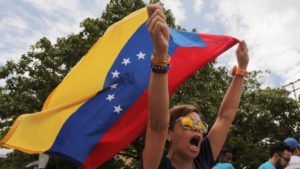Dried henna powder. Animal feces. Bleach. Grain alcohol. The wire coat-hanger.
These are some of the many methods women throughout history have used to terminate an unwanted pregnancy. When the safe method for ending a pregnancy–a surgical or medical abortion–is not available, women turn to these alternative techniques, often risking their bodies and lives in the process.
Such methods for terminating a pregnancy or inducing a miscarriage are hardly relics of the past. Improvements in contraceptive access, sexual education, women’s empowerment, and abortion access, though significant, have been disparate. In many places around the world, cultural, legal, and financial barriers continue to prevent women from accessing basic healthcare services like contraception and abortion.
These obstacles are often magnified in times of crisis. Natural disasters, wars, economic crises, and a host of other factors can all further infringe upon women’s reproductive freedom. Women may lose access to healthcare services, or become uniquely vulnerable to violence. When faced with an unplanned, unwanted, or otherwise unsustainable pregnancy in times of crisis, these women must make an impossible decision: continue an undesired pregnancy in already unstable times, or terminate the pregnancy through alternative, sometimes extreme, and often unsafe channels. In this three-part series, we will examine crisis situations around the globe, and explore how times of instability affect women’s reproductive health and safety.
Venezuela: The Reproductive Cost of an Economic Crisis
Venezuela, a vibrant country on the northern coast of South America, is in the midst of the worst economic crisis in the nation’s history. The country plunged into a recession in 2014 when the price of oil, which accounts for about 95 percent of Venezuela’s export earnings, dropped sharply. Mandated price controls on essential goods and a government-controlled foreign currency exchange further weakened the country’s economic foundation, and as the administration continues to print currency, inflation has skyrocketed.

In addition to causing widespread shortages of basic goods, the current economic crisis has rendered birth control pills exorbitantly expensive. With shortages of between 80 and 95 percent of all medications nationwide, contraceptives are considered non-essential medication, as ministries and other providers focus on treatments for illnesses like hypertension and cancer. By classifying contraceptives as non-essential, healthcare providers have left women to fend for themselves on the black market, where a box of birth control pills can cost the equivalent of up to ten months’ salary at the minimum wage. Venezuelan President Nicolás Maduro has also refused to open humanitarian aid channels, further reducing women’s ability to access contraception.
To make matters worse, abortion is illegal except in cases of a threat to the life of the pregnant woman. Both women who are found to have illegal abortions and physicians who are found to have performed them can be imprisoned for several years. The government encourages pregnancy by offering a stipend to pregnant women and to every new child born, yet inflation has rendered these stipends microscopic–700,000 bolivars ($0.39) per pregnancy and 1 million bolivars ($0.56) per newborn.
Unable to access contraception, denied abortion through legal channels, and offered meager economic support if they do become mothers, many Venezuelan women are taking extreme measures to prevent and terminate pregnancy. Women like Darling, an impoverished 21-year-old mother of three, are choosing sterilization over the economic burden of additional children. The Venezuelan government periodically offers free sterilization days in public hospitals. But while the procedure used to be available only to women over 35 with three or more children, the economic crisis is now pushing teenagers and other young women to choose sterilization. For many desperate women, sterilization feels like the only option. And when a woman’s “choice” is reduced to either uncontrolled reproduction or irreversible sterilization, she doesn’t have much choice at all.
Other Venezuelan women are turning to self-induced abortion. Venezuela’s Information Network for Self Abortion offers a free telephone line for women who wish to end their pregnancies and need information about the safest way to do so without medical care. Before 2014, the Network received an average of five to ten calls per day. By 2015, they were receiving 80 to 100 calls daily, and attributed the over a thousand percent increase to the economic crisis driving up the price of contraception. While the Network helps women safely self-induce abortion, many Venezuelan women terminate their pregnancies in unsafe ways. Illegal abortion was the second highest killer of women aged 12 to 49 in 2016, and responsible for 16 percent of all maternal deaths. Because abortion is illegal, Venezuelan women risk their lives to terminate their pregnancies on their own terms.
Crises like Venezuela’s economic recession have catastrophic consequences for both these women’s lives and the nation’s future. Thousands of women are dying from unsafe abortions each year. Most of these women are already mothers, leaving thousands of children orphaned. Widespread sterilization will have long-term effects on population growth and the future of the country. The psychological devastation of such rampant reproductive coercion is difficult to quantify. While Venezuela’s crisis is considered primarily economic, the reproductive effects are broad and devastating.
– Anna Katz, Communications Intern
